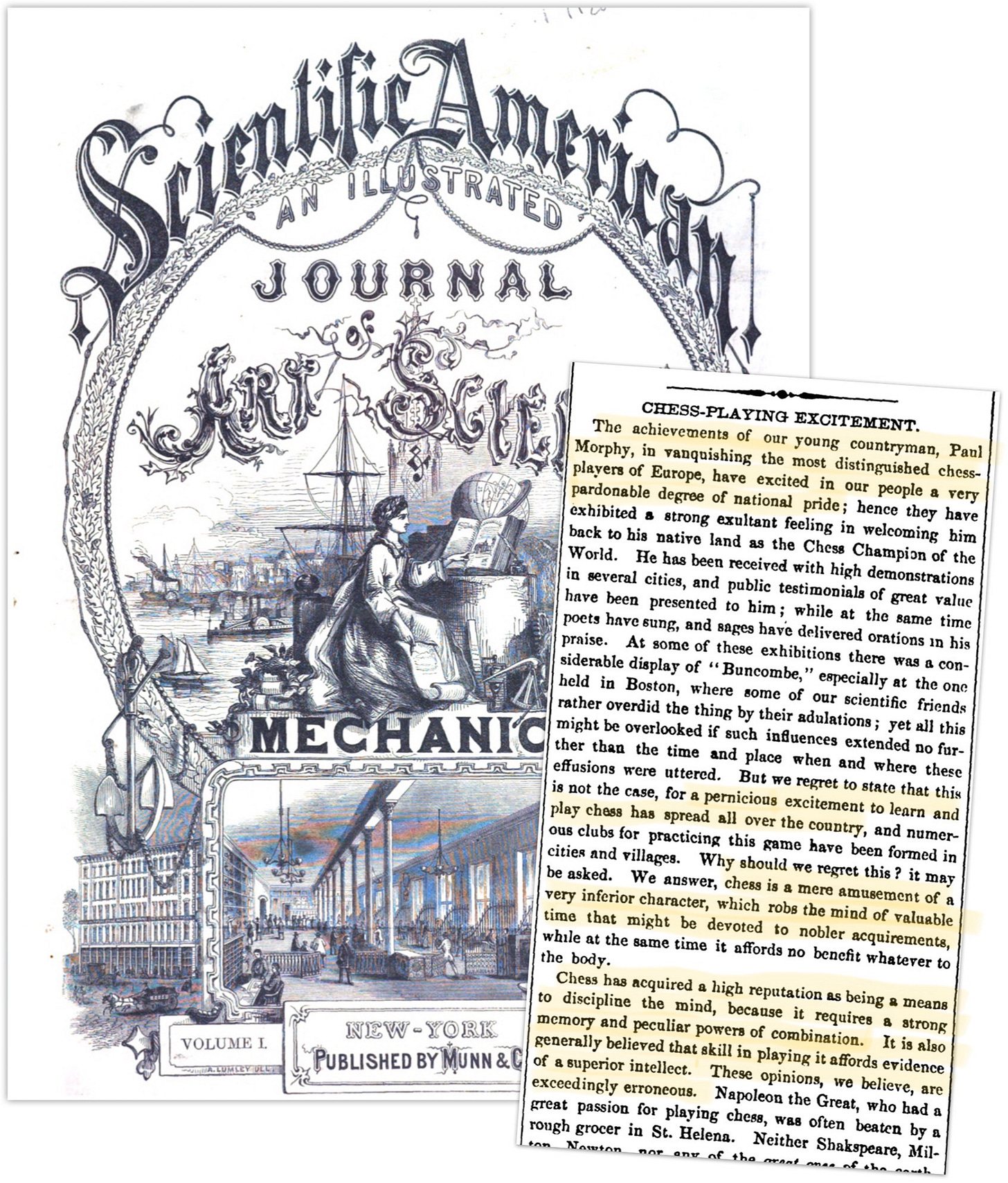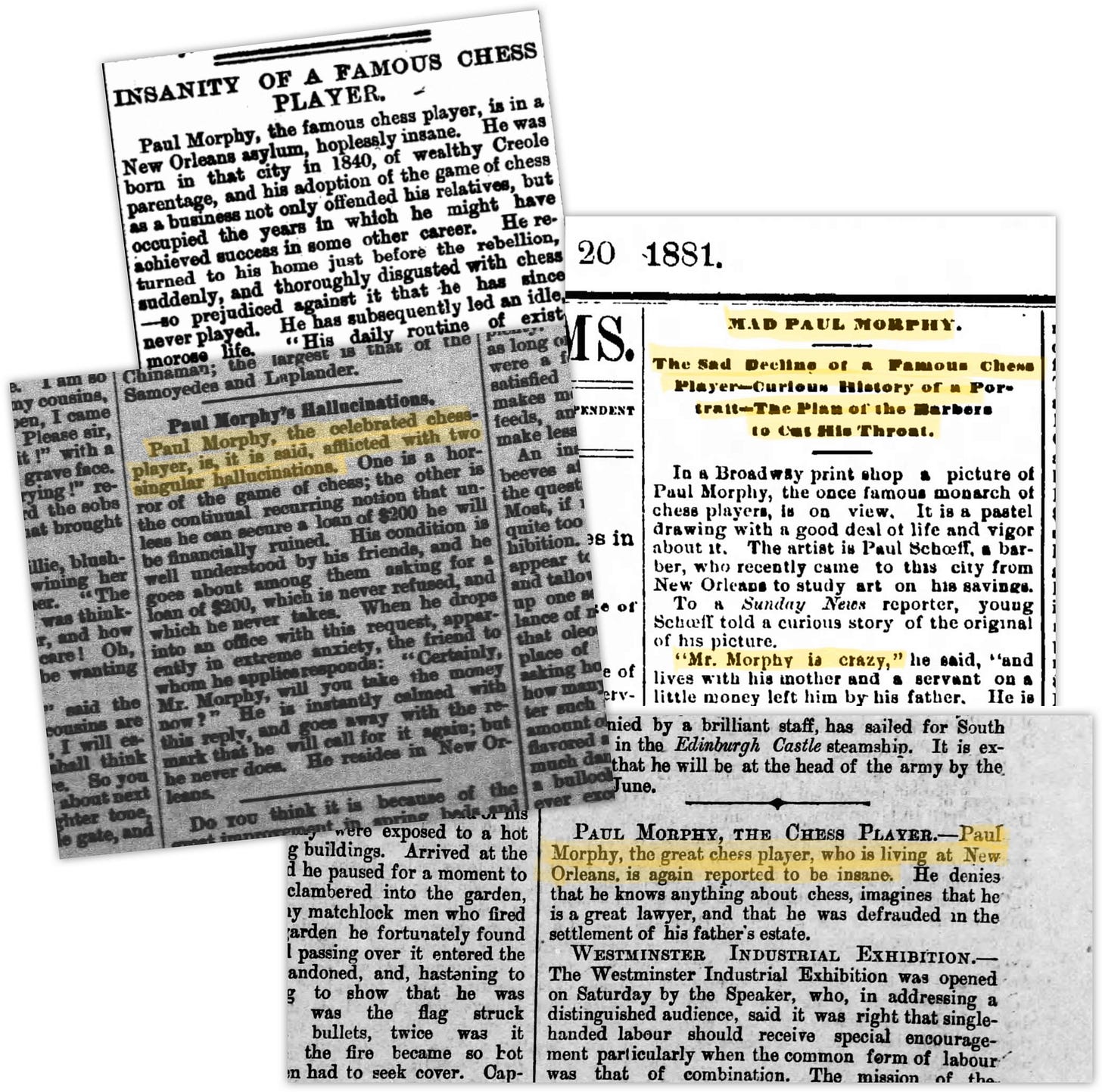New Years Resolutions of Yore: Vices That Became Virtues
Virtues We Strive to Embrace Were Once Vices We Swore to Eschew
In centuries past, things considered virtuous today; reading, cycling, radio listening and chess playing were deemed unhealthy vices.
Amusingly this means some New Years resolutions set today are inversions of resolutions set in prior centuries. Where we may aspire to read and cycle more in 2023, people in 1923 may well have pledged to do them less.
As a new year beckons we explored secular sins that eventually became virtues:
READING
Resolution: 📚 CUT BACK ON READING, ESPECIALLY IN BED
As books became cheaper and more abundant, concerns about reading ‘too much’ became a heated public debate - while the religious worried about the bible competing for attention, others worried about ‘information overload.’
Novel reading was thought to inspire women to seek risk and novelty, while inspiring violent criminal acts by children. Other complaints included the prevalence of people staring down at books on public transport:
Where today we feel guilt for playing on our smartphones in the bedroom - after we wake and before we sleep - reading books in bed was once treated as similarly compulsive, incompatible with a good nights sleep and possibly damaging to your eyes (in a dimly lit room.)
BICYCLE RIDING
Resolution: 🚳 REDUCE BIKE RIDING
Bicycle riding was a newly popular form of transportation in the late 19th century, thanks to the safety bicycle: cheaper and more practical iteration with inflatable tires for a smooth ride. As the bicycle rolled across the world, critics followed, calling it dangerous because it startled horses and unbecoming for women, who had to wear traditionally male attire to ride (‘bloomers.’)
While some physicians argued cycling was healthy others linked it to insanity, deformities of the spine, face and even a cause for appendicitis. One insurance company even refused to insure avid bicycle riders, while one army recruitment office rejected applicants who were avid cyclists because it was assumed they had a weakened ‘bicycle heart.’
RADIO
Resolution: 🚳 REDUCE RADIO TIME
The rise of the radio was a bigger deal than most realize - arguably bigger than television - which was seen as an evolution of radio. Radio’s growth in society was inevitably followed by handwringing and speculation about its possible downsides: dead birds, bad weather, poor grades and sleep deprivation were just some of the unfounded concerns.
GAMES
RESOLUTION: ✏️ CUT DOWN ON CHESS PLAYING and CROSSWORDS
Crosswords
Today word games are widely considered good for our brains, crosswords have survived the transition from print to digital and new word games continue the emerge - like Wordle - which was acquired by The New York Times.
Ironically The New York Times - now famous for its crossword - would refuse to publish the puzzles for many years, deeming them unworthy of a serious publication. Why? Because they were considered unintellectual and associated with distraction, earning bans by at least one professor and a judge.
Chess
In 1858 Paul Morphy became widely considered the world Chess champion, as a result national interest in the game boomed, leading to Scientific American weighing in on the matter opining: “Chess is a mere amusement of a very inferior character, which robs the mind of valuable time”
Paul Morphy’s mental health would rapidly decline in the proceeding years, Chess was blamed by some for the deterioration, when other champions met similar fates there was speculation Chess might have a negative impact on players more generally.
Note to existing subscribers: in 2024 we’re ramping up our output - to support this effort we’ve launched a paid newsletter option. Through 2024 paid subscribers will get longer audio versions of each public post, starting this week.












